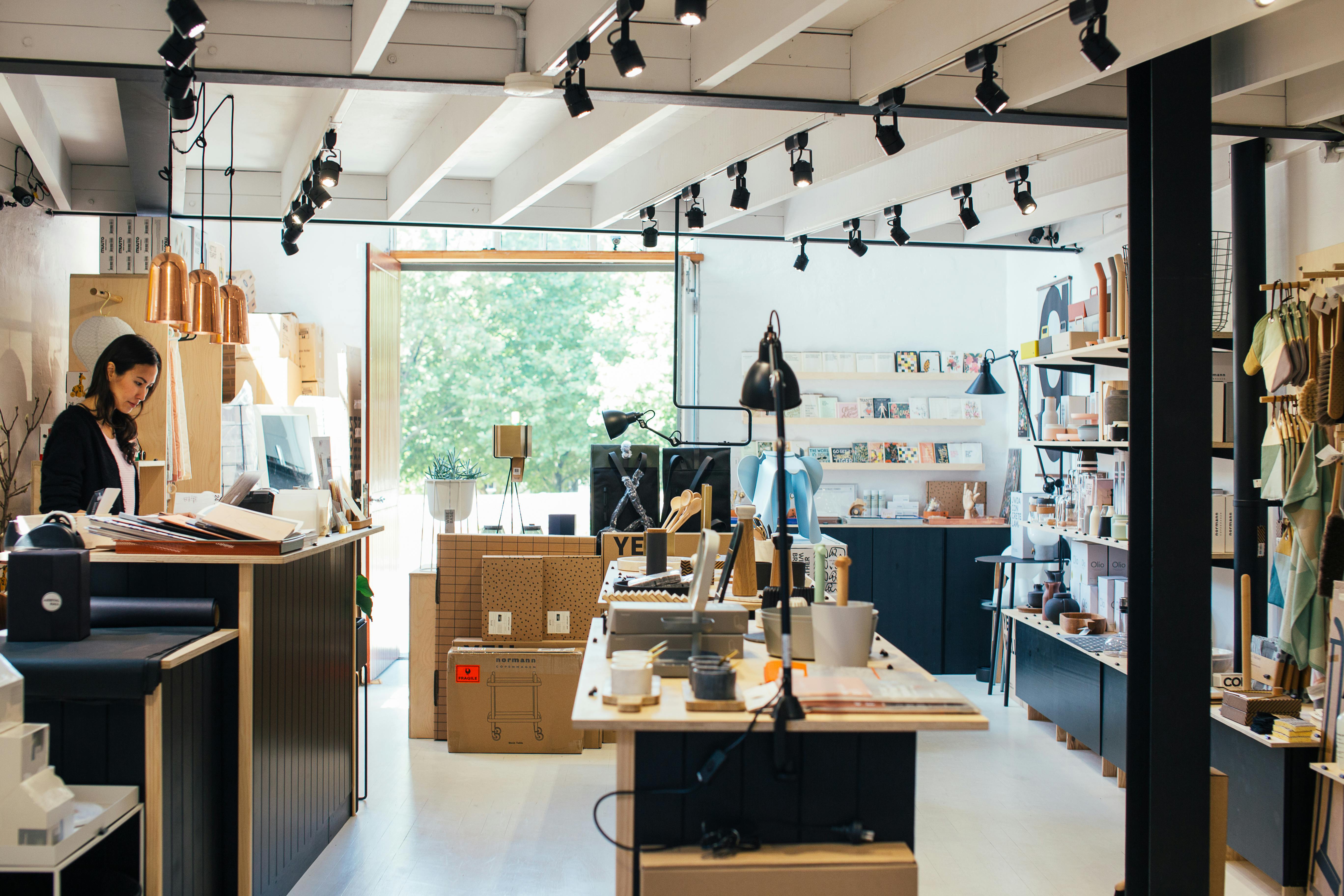Alright, listen up. You know that feeling when you finally snag that designer bag or a killer watch you've been dreaming about, but you didn't have to sell a kidney to get it? Yeah, that’s the magic of luxury resale. For years, people thought "used" meant "less than," especially when it came to fancy stuff. But man, have things changed. We're not just talking about dusty old thrift store finds anymore. We're talking about a whole new world where pre-owned luxury isn't just cool, it's smart.
1. Sustainability: The Eco-Chic Revolution
Okay, let's start with the big one, the one that’s really changing the game: sustainability. Remember when "fast fashion" was all the rage? Buy cheap, wear once, toss. Thankfully, that's kinda losing its sparkle, especially with younger generations like Millennials and Gen Z. These guys are smart. They're growing up with climate change warnings plastered everywhere, and they actually care. They're not just looking for a good deal; they're looking for a good *impact*.
Think about it. Every new luxury item uses resources—water, dyes, materials, labor, shipping. It all adds up to a pretty big carbon footprint. But when you buy a pre-owned item, you're essentially giving it a second life. You're stopping it from ending up in a landfill, and you're reducing the demand for new production. It’s like recycling, but way more glamorous. This isn't just some fringe movement; it's a huge pull for consumers who want to feel good about their purchases towardsconsumergoods.com.
I saw this firsthand with my cousin. She’s a huge vintage lover, not just because it’s cool, but because she genuinely believes in not wasting stuff. She found this insane vintage Chanel jacket earlier this year on a resale site. It was probably from the 90s, in perfect condition. She practically glowed talking about how she wasn’t contributing to new production, and how it was a piece of history that still had life in it. That feeling, that sense of responsible luxury, is a massive selling point. It’s no longer about simply owning something fancy; it’s about owning it consciously.
2. Authenticity: Trust in a Tangled Web
Alright, so you’ve decided to buy pre-owned. Great! But what’s the first question that pops into your head when you see a super cheap designer bag online? "Is it real?" Right? Because fake stuff is everywhere, and nobody wants to spend good money on a knockoff. This is where authenticity swoops in like a superhero.
The growth of online luxury resale platforms has directly led to this obsession with authenticity. Companies like The RealReal and Vestiaire Collective aren’t just glorified online pawn shops. They've built their entire business around trust. They have whole teams of experts who literally inspect every single item that comes through their doors globenewswire.com. We’re talking about meticulous checks, from stitching patterns to serial numbers, from the feel of the leather to the weight of the hardware. They have to be right because if they mess up, their reputation, and our trust, goes right out the window.
A while back, I was looking for a specific vintage Rolex model. It’s a pretty rare one, and fakes are notorious. I found one on a reputable platform that had a detailed authentication process. They even showed photos of the watch being inspected, with close-ups of the movement and engravings. That level of transparency made a huge difference. I felt secure, knowing someone with real expertise had vouched for it. It's not just about a pretty website; it's about the rigorous, almost obsessive, attention to detail that builds serious consumer confidence. When you know something’s the real deal, even if it's pre-owned, it still feels brand new.
3. Scarcity: The Allure of the Hard-to-Find
Here’s a secret about luxury: people love what they can’t have. Or rather, they love what's hard to get. That's where scarcity comes in. Think about those limited-edition sneakers that sell out in minutes, or a specific handbag that’s been discontinued. You can’t just walk into a store and buy them new. They’re gone. Poof. Vanished.
But they're not really gone, are they? They often pop up in the resale market, and sometimes, they’re even more expensive than their original retail price linkedin.com. Why? Because of that magic word: scarcity. When something is rare, it instantly becomes more desirable. It's a bit like collecting baseball cards or stamps. The rarer the item, the more value it holds. People aren’t just buying a product; they’re buying a piece of history, a bit of exclusivity.
My buddy, Alex, is a sneakerhead. He’s obsessed with rare Jordans. He’ll tell you stories about waking up at 4 AM to try and snatch a limited release, only to have them sell out online in seconds. So, where does he go? The resale market. He knows he's going to pay a premium, but for him, it’s worth it to get that one-of-a-kind pair no one else has. It's not just about owning the shoe; it's about the hunt, the bragging rights of having something truly special that’s no longer in production. This craving for unique, no-longer-available items is a major force driving the resale market.
4. Brand Partnerships: The Big Names Join the Party
For a long time, traditional luxury brands held their noses up at the idea of "second-hand." It was seen as devaluing their brand, messing with their image of exclusivity and newness. But guess what? The times, they are a-changin'. Now, luxury brands are jumping into the resale game themselves. Sometimes they partner with existing platforms, and sometimes they even launch their own resale programs globenewswire.com.
This is a huge deal. It’s like getting a stamp of approval from the big guys. When a brand like Gucci or Stella McCartney says, "Hey, our old stuff is cool enough to resell," it validates the entire second-hand market. It tells consumers, "It's okay to buy pre-owned, it's not 'less than,' it's actually part of our brand's lifecycle."
It’s a smart move for them too. It’s a new revenue stream, sure, but it also helps them control their brand image in the resale space. They can ensure their older products are still presented well, and they can even use it to connect with a new, younger audience who might not be able to afford their brand new line. It’s like they realized, "If you can’t beat ‘em, join ‘em," but in a really sophisticated, strategic way. This shift from resistance to embrace by the luxury brands themselves shows just how powerful and legitimate the resale market has become.
5. Digital Innovation: Tech That Builds Trust
Let’s be real, buying something expensive online, especially something pre-owned, can feel a bit risky. You can’t touch it, you can’t examine it closely. This is where digital innovation steps in to save the day. The luxury resale market isn't just about pretty pictures; it’s about serious tech. We’re talking about AI and blockchain technology that are making the whole process more trustworthy and transparent topbubbleindex.com.
Imagine scanning a QR code on a luxury bag and instantly seeing its entire history: where and when it was purchased, how many times it’s been authenticated, even its previous owners (anonymously, of course). That’s the kind of stuff blockchain can do – it creates an unchangeable, transparent record of an item’s journey. AI is being used too, for everything from helping authenticate items by analyzing microscopic details to personalizing your shopping experience by suggesting items you might like.
I’m a bit of a tech nerd, so this stuff really excites me. When I was looking for a specific vintage watch online, the platform I used had this cool AI-powered authentication tool that could analyze the watch’s movement and compare it to a vast database of known authentic models. It gave me an extra layer of comfort. It’s not just about flashy websites anymore; it’s about using cutting-edge technology to build trust and make the online buying experience as secure and reliable as walking into a high-end boutique. This digital push is crucial because it takes the guesswork out of buying luxury resale, making it accessible and safe for everyone.
6. Affordability: Luxury for the Rest of Us
This one is probably the most straightforward. Let’s be honest: luxury goods are expensive. Like, really, really expensive. A new designer handbag can cost more than a used car. And with prices constantly going up thanks to tariffs and other economic pressures, getting your hands on a brand-new high-end item is increasingly out of reach for a lot of people linkedin.com. That’s where affordability comes in as a shining beacon.
Second-hand luxury makes those dream items accessible. It opens the door to high-end brands for people who might not have the budget for brand-new retail prices. It’s not about being cheap; it’s about being smart. You can get a pre-owned Louis Vuitton bag in fantastic condition for a fraction of the original price. Or that classic Cartier watch you always wanted, but never thought you could afford.
My friend Sarah, who’s just starting her career, always wanted a classic trench coat, a real high-quality one. A new Burberry trench was way out of her price range. But she searched on a resale site and found one, pre-owned, in almost perfect condition, for about a quarter of the new price. She was stoked! It wasn't about settling; it was about getting a classic, quality piece without breaking the bank. This aspect of making luxury more inclusive and attainable is a massive draw, expanding the luxury market to a wider audience than ever before. It’s democratizing luxury, one pre-owned item at a time.
7. Personalization: Your Style, Your Story
In the age of mass production, everyone kind of ends up looking the same. But luxury consumers, especially those in the resale market, aren't looking to blend in. They want to stand out. They want unique pieces that reflect their individual style and tell *their* story. This is where personalization shines.
It's not just about finding a good deal; it's about finding *the* good deal, *the* piece that speaks to you. Resale platforms are getting smarter about this. They’re using algorithms and human curators to offer bespoke products and curated recommendations topbubbleindex.com. It’s like having a personal shopper who knows what you like and points you towards those one-of-a-kind treasures that perfectly fit your aesthetic.
I’m a big believer that your clothes should say something about you. I love finding vintage pieces that no one else has. It could be an old band tee, a unique leather jacket, or a quirky accessory. It’s not about fitting in; it’s about expressing myself. And the luxury resale market is a treasure trove for that. You’re not just buying a mass-produced item; you’re often buying something with a history, something that has been cared for, and something that you can infuse with your own personal style. It's about building a unique wardrobe that reflects *you*, not just the latest trend. This desire for individuality and a tailored shopping experience really deepens customer loyalty and makes the whole luxury resale journey feel much more personal.
The Bottom Line: It’s More Than Just a Label
So, there you have it. The luxury resale market isn't just booming because people want cheap designer stuff. It's thriving because it taps into deeper consumer desires: the need for ethical choices (sustainability), the assurance that what you're buying is real (authenticity), the thrill of owning something truly rare (scarcity), the seal of approval from the brands themselves (brand partnerships), the security of cutting-edge tech (digital innovation), the joy of finally owning that dream item without emptying your bank account (affordability),


